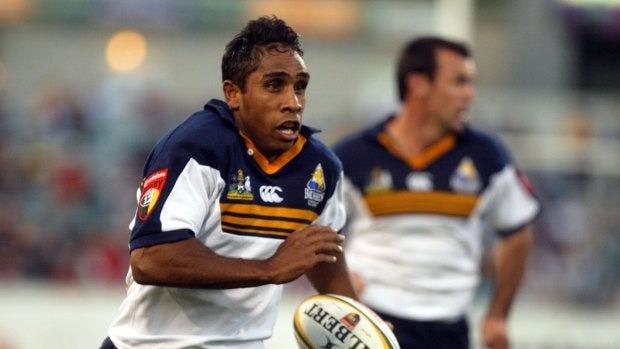
I come from a rugby mad family, my paternal grandfather, a world war II veteran in the Cape (Coloured) Corps, played at the highest permitted level for a man of his colour under the still colonial and soon to be apartheid South African regime. He was, according to what little I know about him, an exceptionally gifted player. My father and his siblings almost all played rugby. Most of my cousins and I all played rugby in the winter and cricket in the summer. We were all, at some level, involved in our local rugby club Tygerberg RFC in Ravensmead, then Tiervlei before the name was taken by whites who wanted it in a different area. The gendered nature of the sport is of course something I will return to, but at the time it was pure bliss to be pulled into this beautiful world of this sport I love so much, and to be able to remember a grandfather who I never met, who died when my father was a child.
I was supposed to love the Springboks, the national rugby team of South Africa. Born within the last dying years of apartheid in South Africa, my parents were trying to teach me to love them, but I hated the Springboks since my childhood. Since before the 1995 world cup in South Africa, where Nelson Mandela raised the hand of victorious bok captain, Francois Pienaar, while the apartheid era flag was still being waved by the white fandom outside and in the stadium at the final that day, I hated that team. The national and provincial teams overwhelmingly overrepresenting in whiteness, in the way land ownership in South Africa to this day is overrepresented in whiteness. This violent contradiction was unsettling, even for my child mind, because how was it possible for me to see the most talented players week in and week out, brown and black men, but only one or two appear in the national and provincial teams.
I also hated Australian rugby growing up, except for a few Brumbies players like Totai Kefu, George Smith, and of course the nuisance scrumhalf, George Gregan. It was for different reasons initially, I think, but coming to learn more about Australia throughout my childhood I felt justified in that hatred of the national team especially, the Wallabies. But, there was a player I loved deeply in those Australian teams, Andrew Walker. Walker, an indigenous Australian, was the first player that I knew was indigenous to that land. I was 11 years old or so when I first watched him playing super rugby on TV, super 12 at the time. He embodied the possibility of beauty and romance in the sport, he was incredibly fast without seeming to put in exceeding effort, he would glide through any gaps that looked too small for him to fit through, he moved in a way that left everyone wrong footed. He was magic. A short, dark skinned, beautiful man. He moved with elegance and intelligence far in excess of what people would consider possible in this apparently brutal sport.
Walker drew me in because of his play, but also because he was one of very few indigenous Australian players to make it to the highest level of the sport. I was passively and actively learning about the world, race, history, and politics early on in my childhood and so I knew some of the story of the ethnic cleansing of the settler colonial populace of Australia, forcing indigenous people into positions of violent subjugation. So to see this player emerge and change the game in beautiful ways was life changing. He was magic to watch, I will say it again. When my favourite team, the Wellington Hurricanes of New Zealand, would play against the ACT Brumbies, I would cheer for my team, but I would also quietly hope to see Walker do something special, and he always did.
I think of my grandfather, a black man, or in the language of my people, coloured man, who should have had the chance to show his skill to the world. I think of my father and uncles and older cousins, some of whom should have been able to represent their province and possibly their country. I think of growing up and playing rugby and in the 2000s still being racially abused by white players on the field, and their supporters on the side of the field. I think of Andre, a tall white prop, my teammate, wearing a t-shirt with the old apartheid era flag and the wording on it “100 boer”, with “praat afrikaans of hou jou bek” (speak afrikaans or shut up) on the back, blasting Bok Van Blerk’s racist anthem “De La Rey” at us out the backs of their cars before practice.
Andrew Walker is exceptional because he was a gifted rugby player beyond anything that I was watching at that time. Andrew Walker was also exceptional because he came to regional stardom at a time where, still, rugby in Australia at the national level was dominated by white players. He came to prominence at a time where the mass murder and displacement of indigenous Australians was still not being contended with, where his people were still considered exotic fringe museum objects for ogling at. He helped me want to always continue to learn and to build towards a solidarity work and a study of history that connects stories of our people transnationally, beyond state border and oceans.
He could glide through a gap not wider than the width of a rugby ball, an illusion, elusive, but materially consequential for his team and for his people.
A luta continua
Wilton Schereka, Black Auralities



